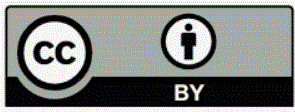
Journal of Salutogenic Architecture
Authors of original research reports should include an accurate overview of the work done as well as an objective discussion of its significance. The underlying data should be appropriately reported in the study. A paper should include enough detail and references to allow others to replicate the work. Fraudulent or knowingly inaccurate remarks are unethical and must be avoided. The authors should adhere to the guidelines outlined in the sections Processes of Reviewing, Plagiarism Policy, and Ethics of Publication, as well as the Statement on Publication Ethics and Malpractice.
Sources Acknowledgment
It is always necessary to properly acknowledge the work of others. The authors should cite publications that have influenced the quality of the present research. Information received privately, such as through discussion, communication, or conversation with third parties, shall not be utilized or reported without such a source's explicit, written authorization. Information received during confidential services, such as refereeing manuscripts or grant applications, should not be used unless the author of the content engaged in these services gives clear, written permission.
The paper’s authorship
The Journal of Salutogenic Architecture asks that all submitted articles be the author's original work exclusively and not for others unless formal permission has been given. This includes text, images, diagrams, and tables.
All individuals listed as authors need to be eligible for authorship. Each author should have made enough contributions to the research to publicly accept responsibility for it. People who participated in the committee and provided financial support, technical support, or both could be mentioned without being given credit as writers. Funding sources, the provision of professional technical assistance, the evaluation and critique of a paper, help with statistical analysis and interpretation, or involvement in the development of concepts or project planning are a few examples of unique contributions that could merit acknowledgment.
Disclosure and Interests Conflicts
Any financial or other significant conflict of interest that could be considered to have an impact on the findings or interpretation of a manuscript should be disclosed by all authors in the publication. Disclosure of all funding sources for the project is required. Employment, consulting agreements, stock ownership, honoraria, expert testimony fees, patent applications and registrations, grants, and other financial support are a few examples of potential conflicts of interest that need to be reported. At the earliest stage possible, any conflicts of interest should be declared.
Essential Errors in Published Works
When an author discovers a serious error or inaccuracy in his or her published work, it is the author's responsibility to contact the journal editor or publisher as soon as possible and to work with the editor to retract or fix the manuscript. If the editor or publisher discovers from a third party that a published work contains a serious error, it is the author's responsibility to promptly withdraw or revise the paper or provide evidence to the editor to confirm the original publication's correctness.
Reporting Standards
Authors of original research reports should include an accurate overview of the work done as well as an objective discussion of its significance. The underlying data should be appropriately reported in the study. A paper should include enough detail and references to allow others to replicate the work. Fraudulent or knowingly inaccurate remarks are unethical and must be avoided. Articles for review and professional publishing should also be truthful and objective, and the editorial journal of salutogenic architecture activities should be recognized as such.
Plagiarism and originality
The authors should ensure that their works are authentic and that if they have used the work and/or words of others, this has been properly cited or quoted. Plagiarism can take several forms, including "passing off" another's paper as the author's own, copying or paraphrasing major parts of another's paper without attribution, and claiming results from other people's studies. Plagiarism, in any form, is unethical publication conduct and must be avoided.

Journal of Salutogenic Architecture
This journal is published through an Open Journal System as part of the Public Knowledge Project (PKP).
This journal is licensed under a Creative Commons Attribution 4.0 International (CC BY) license.
